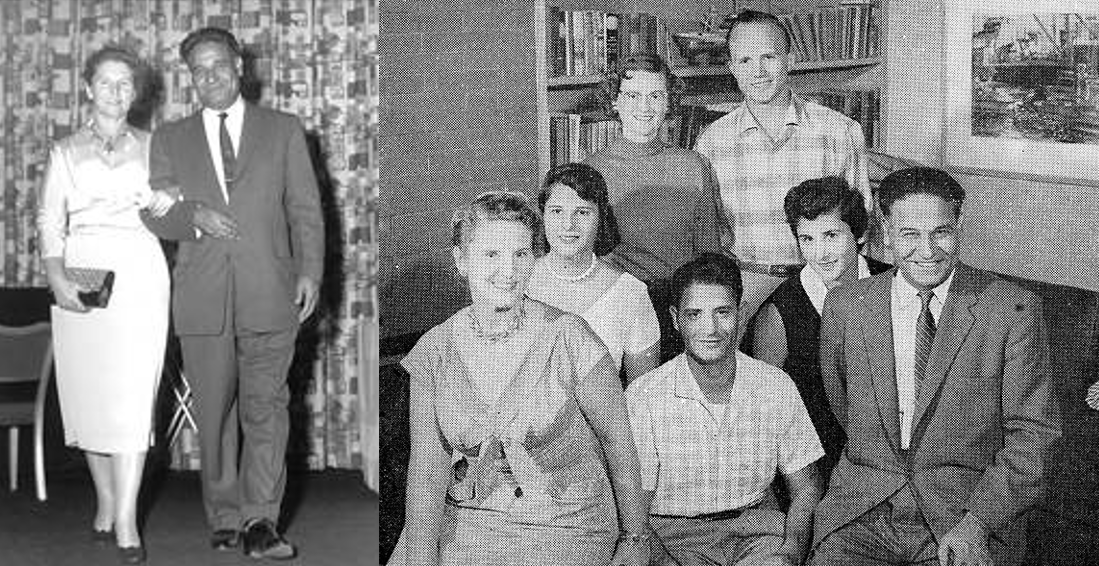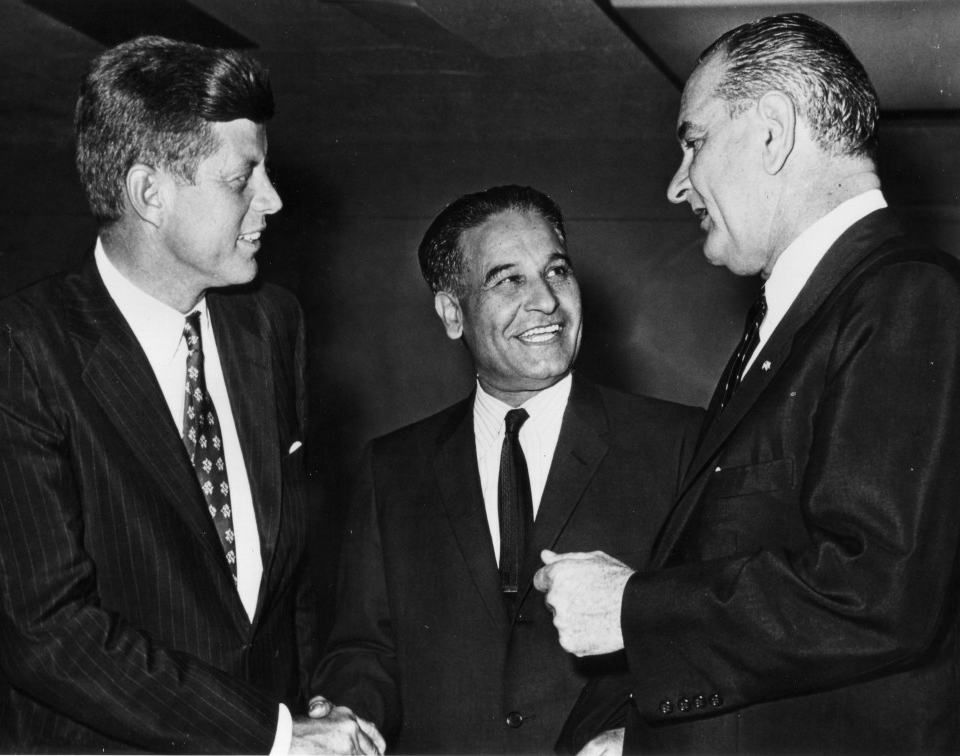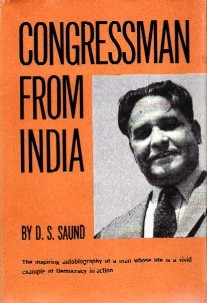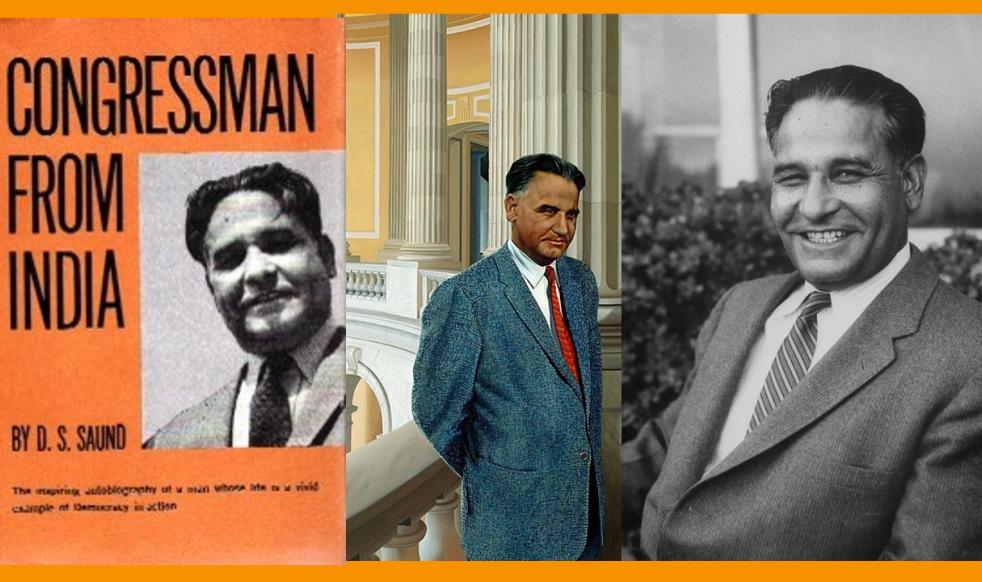Dalip Singh Saund was the first Asian American elected to U.S. Congress, yet few know his name. In fact, he was also the first Sikh and Indian elected to the United States Congress. Prior to his tenure in Congress, he was active in local politics in Imperial County, California.
Born on September 20, 1899, in Chhajulwadi, British India, to Natha Singh and Jeoni Kaur, Saund's journey from a modest village upbringing in Punjab to the hallowed halls of Congress is a testament to resilience and determination.
Inspired by the ideals espoused by luminaries like Woodrow Wilson, Abraham Lincoln, and Theodore Roosevelt, Saund embarked on a transformative voyage to America in 1920, fueled by a fervent desire to pursue education. Armed with a Bachelor of Science in mathematics from the University of Punjab, he set foot on American soil, initially aiming to study food preservation at the University of California, Berkeley.
Saund's academic pursuits flourished, culminating in a Master of Arts in 1922 and a Ph.D. in 1924. However, his sojourn in America extended far beyond his initial plans as he embraced a new life, marrying Marian Z. Kosa in 1928 and raising a family of three children. Despite encountering the harsh realities of immigrant life and the prevalent prejudices of the time, Saund carved a niche for himself in the agricultural community of Imperial Valley.

Saund's political ascendancy gained momentum as he assumed roles of increasing prominence, from serving on the Imperial County Democratic Central Committee to his election as Justice of the Peace of Westmoreland. Undeterred by challenges and setbacks, he made history in 1956 by clinching victory in California's 29th congressional district, becoming the first Asian American, Sikh, and Indian American to be elected to Congress.
His tenure in the U.S. House of Representatives from 1957 to 1963 was marked by unwavering advocacy for his constituents and principled stances on national issues. Saund's legacy transcends mere political milestones; he embodied the spirit of resilience and the pursuit of justice for marginalized communities.

In the 1956 election, Dalip Singh Saund entered the race to succeed John R. Phillips, who was retiring, as the United States representative from California's 29th congressional district. However, his candidacy faced a legal challenge when a claim was filed on April 16, questioning his eligibility based on citizenship requirements. This challenge was ultimately dismissed by the 4th California Courts of Appeal. Undeterred, Saund secured the Democratic nomination and proceeded to defeat the Republican nominee, Jacqueline Cochran, in the general election, despite Dwight D. Eisenhower carrying the area in the presidential election.
His political journey continued with subsequent triumphs. In the 1958 election, Saund prevailed over John Babbage, a former member of the California State Legislature, and in the 1960 election, he emerged victorious against Charles H. Jameson.
Even amid personal challenges, such as a stroke he suffered on May 1 during the 1962 election campaign, Saund demonstrated resilience. Despite being hospitalized at the National Naval Medical Center for the entirety of the campaign, he secured renomination against Rya E. Hiller. However, his bid for reelection was thwarted by Republican nominee Patrick M. Martin.

Throughout these electoral battles, Saund's tenacity and commitment to public service remained unwavering, leaving an enduring legacy in American political history. His immersion in local politics marked the beginning of a remarkable journey of advocacy and activism. Saund's involvement in the Indian Association of America and his relentless efforts to lobby for legislative reforms, notably the Luce–Celler Act of 1946, underscored his commitment to advancing the rights of immigrants. This pivotal legislation paved the way for Saund himself to attain American citizenship in 1949, a milestone in his quest for equality and inclusion.
Later, Saund wrote a captivating memoir, titled: "Congressman From India". Within its pages, Saund eloquently traced his remarkable journey from humble origins in Punjab, India, to his triumphant achievements as a farmer, entrepreneur, and statesman in the United States.

"Congressman From India" serves as an inspiring testament to one man's indomitable spirit and his quest to realize the American dream while leaving an indelible mark on society. It stands as essential reading for anyone interested in the rich tapestry of Indian American history, as well as those impassioned by the intricacies of politics and civil rights. Through the lens of his memoir, readers are granted a poignant glimpse into the experiences of an Indian immigrant navigating the complex landscape of mid-20th century America. Saund emerges as a fervent advocate for civil rights, tirelessly championing the cause of equality and justice for all individuals.
Saund's narrative is one of unwavering resolve and relentless pursuit of his aspirations, despite encountering myriad obstacles along the way. Confronting the harsh realities of discrimination and racism as an Indian immigrant in America, he refused to succumb to adversity. Instead, he forged ahead with determination, channeling his efforts into acquiring an education, establishing a thriving agricultural enterprise, and immersing himself in the realm of politics.
In 2014, E. Samantha Cheng a Chinese-American journalist, author, and documentarian, launched a bio-documentary, "Dalip Singh Saund: His Life, His Legacy," to immortalize Saund’s remarkable journey and amplify his voice in the annals of history. This short 36 minute film, Dalip Singh Saund: His Life, His Legacy, tells the inspiring story of an ethical and passionate man who rises above prejudice and racism during one of this Nation's most challenging times all the while living the American Dream.

Saund's unwavering commitment to equality, his resilience in the face of adversity, and his tireless advocacy for immigrant rights resonate profoundly in today's socio-political landscape. His story serves as a poignant reminder of the transformative power of perseverance and the enduring pursuit of the American dream.

 415 Views
415 Views 1 comment
1 comment
Apr 22, 2024, 5:17 pm EDT
nice